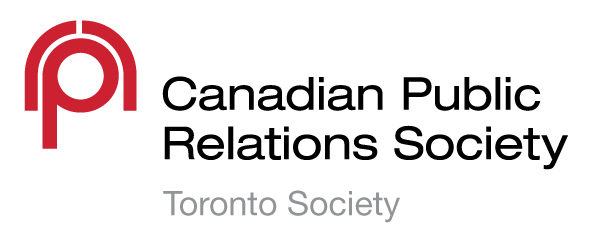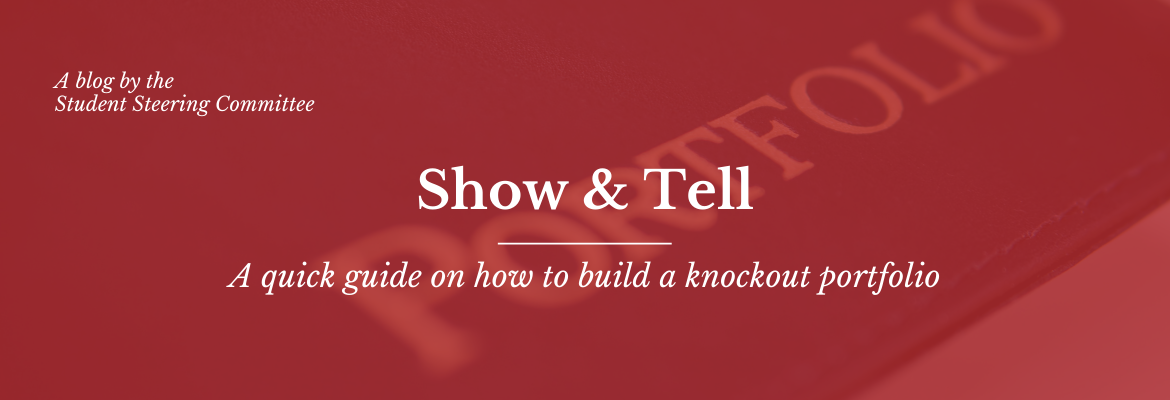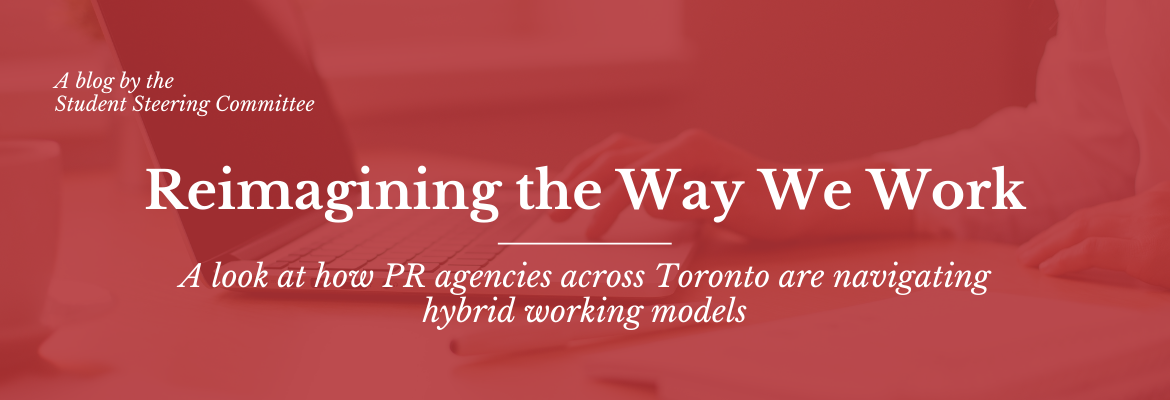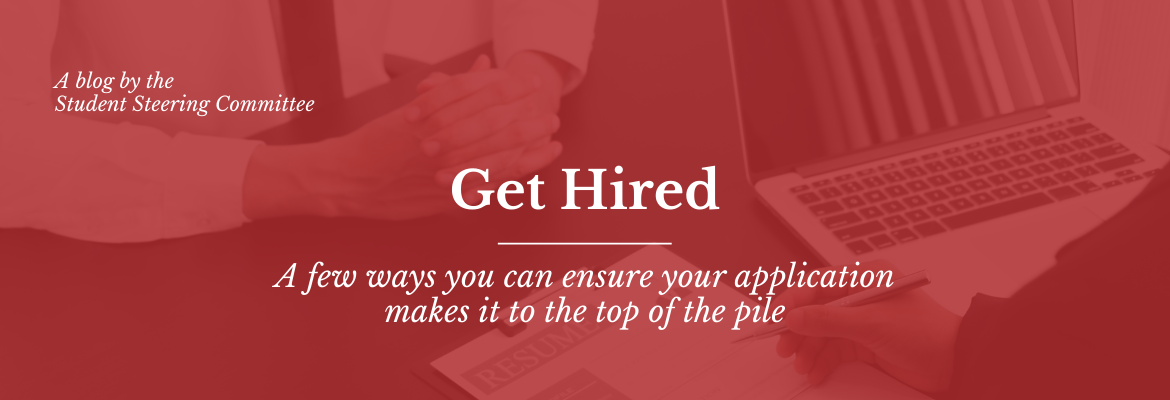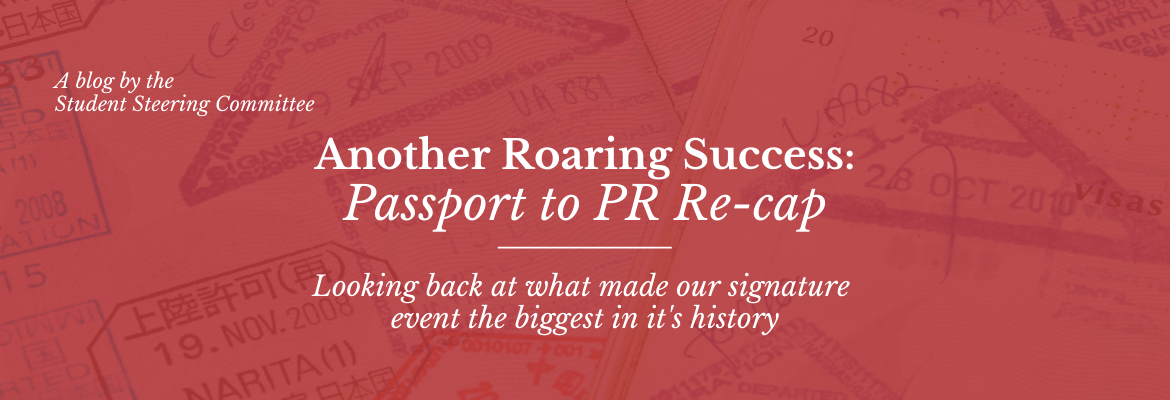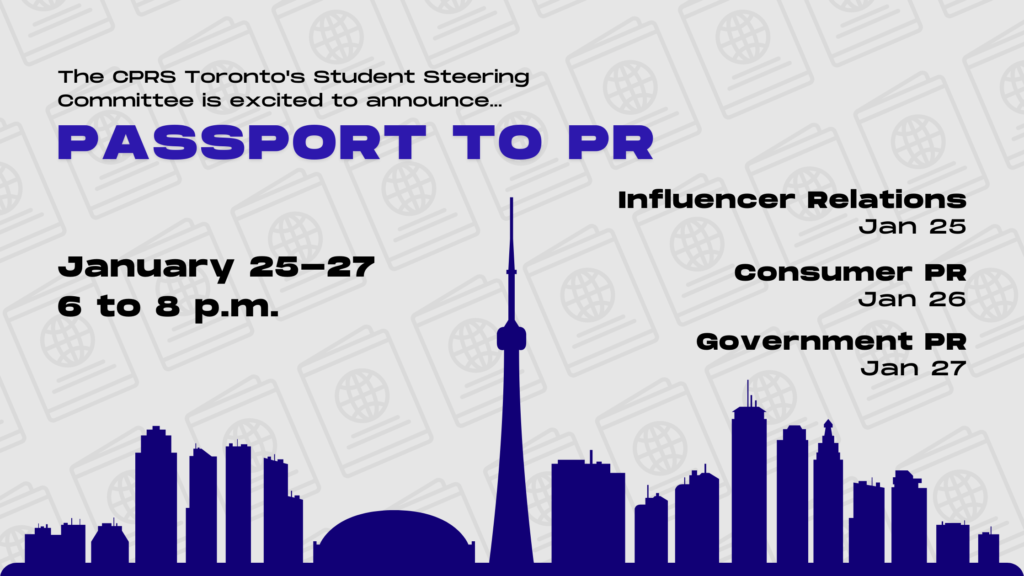Call For Board Members
The CPRS Toronto Board is still in search of new board members to serve as Professional Development and Sponsorship Chairs.
If you are interested in building your resume and volunteering your time with the organization, please contact Lois Marsh at: marshl@marsh-executive.com.
